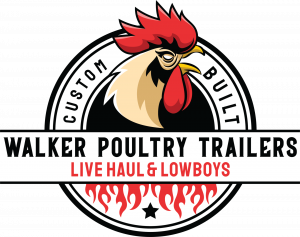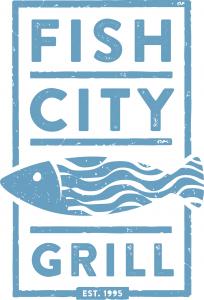
 Biosecurity is paramount in preventing the spread of diseases that can devastate entire flocks. ”
Biosecurity is paramount in preventing the spread of diseases that can devastate entire flocks. ”— Dwayne Walker PHILADELPHIA, MS, UNITED STATES, October 10, 2024 /EINPresswire.com/ -- As the poultry industry continues to thrive in top-producing states such as North Carolina, Georgia, Arkansas, Alabama, Texas, and Mississippi, biosecurity in poultry transport remains a critical component of maintaining flock health and ensuring disease control. The movement of live birds is a key aspect of the poultry supply chain, and with it comes the inherent risk of spreading disease. Effective biosecurity measures, particularly those focused on trailer sanitation, play a vital role in reducing these risks and protecting the industry.
Dwayne Walker, founder of Walker Poultry Trailers, emphasizes the importance of strict sanitation protocols for live haul trailers. “Biosecurity is paramount in preventing the spread of diseases that can devastate entire flocks. Clean, well-maintained trailers help ensure that poultry companies maintain healthy, productive operations.”
Why Biosecurity Matters in Poultry Transport
Biosecurity refers to the set of practices aimed at preventing the spread of infectious diseases within poultry operations. In the context of transport, biosecurity measures are particularly important because pathogens can easily spread from one location to another via contaminated surfaces, equipment, or even the birds themselves.
Diseases such as Avian Influenza (AI) and Newcastle Disease can cause significant economic losses and pose a threat to food security. These diseases can spread through direct contact with infected birds or contaminated surfaces, including transport trailers. A single breakdown in biosecurity during the transportation of live birds can lead to rapid disease transmission, resulting in culling, trade restrictions, and loss of productivity.
Poultry trailers are exposed to a range of biohazards during transport. Fecal matter, feathers, and other organic materials can harbor harmful pathogens, which may remain viable for extended periods if proper cleaning and disinfection protocols are not followed. Ensuring trailers are thoroughly cleaned and disinfected between uses is essential for limiting the potential spread of disease.
Best Practices for Trailer Sanitation Effective trailer sanitation begins with a commitment to regular cleaning and disinfection. There are several steps that can be taken to reduce the risk of contamination and maintain a clean transport environment:
1. Dry Cleaning Before any disinfection process begins, all organic materials should be removed from the trailer. This includes feces, feathers, bedding, and feed residues. Dry cleaning can be accomplished using tools such as shovels, brushes, and blowers to remove large debris. Proper disposal of these materials is critical, as they may contain pathogens.
2. Washing Once the bulk of organic matter has been removed, the next step is to thoroughly wash the trailer. High-pressure water systems are typically used to remove any remaining debris from the trailer’s interior and exterior surfaces. This washing process should focus on all areas of the trailer, including floors, walls, ramps, and any hard-to-reach spots that may trap dirt or organic material.
3. Disinfection After the trailer has been washed and dried, it is essential to apply an appropriate disinfectant to all surfaces. The choice of disinfectant should be based on the pathogens of concern, as different disinfectants target different microorganisms. Common disinfectants used in the poultry industry include quaternary ammonium compounds, peracetic acid, and phenolic disinfectants. Disinfectants must be applied uniformly and allowed sufficient contact time to be effective.
4. Drying Once disinfection is complete, allowing the trailer to fully dry is important for maximizing the efficacy of the disinfectant. Pathogens thrive in moist environments, so drying the trailer completely helps to reduce the likelihood of contamination. Additionally, trailers that are not adequately dried can lead to rust or corrosion, potentially damaging the equipment over time.
5. Regular Inspection and Maintenance Routine inspection and maintenance of the trailer are essential for ensuring sanitation efforts are effective. Any damage to the trailer, such as cracks or holes, can harbor bacteria and other pathogens, making them difficult to clean. Regularly inspecting the trailer’s condition and addressing any maintenance issues promptly can help maintain a clean and biosecure environment for poultry transport.
Biosecurity in Action: Reducing Disease Risk The poultry industry in states like North Carolina, Georgia, Arkansas, Alabama, Texas, and Mississippi is essential to both the local economy and the broader food supply chain . However, the industry’s reliance on live poultry transport also increases the risk of disease transmission. Implementing best practices for biosecurity in poultry trailers is an important step toward minimizing these risks.
In addition to trailer sanitation, companies must also consider other biosecurity measures, such as controlling access to transport areas, ensuring proper training for drivers and handlers, and monitoring the health of the birds being transported. A comprehensive approach to biosecurity ensures that poultry companies can reduce the risk of disease outbreaks and continue to operate efficiently.
Dwayne Walker explains, “The goal of biosecurity is to protect not just one operation, but the entire poultry industry. Every step taken to maintain clean and disease-free trailers contributes to the overall health and safety of the poultry supply chain.”
Benefits of Effective Sanitation for Poultry Companies By following these best practices for trailer sanitation, poultry companies can protect their flocks and minimize the risk of disease outbreaks. Clean trailers reduce the potential for cross-contamination between different loads of birds, helping to ensure that each transport is as safe as possible.
Maintaining high standards for biosecurity also benefits the poultry industry as a whole. Disease outbreaks can have far-reaching effects, including economic losses, trade restrictions, and reduced consumer confidence in poultry products. By prioritizing biosecurity and ensuring clean transportation practices, poultry companies can help safeguard the industry and protect their own operations from unnecessary risks.
Conclusion Effective biosecurity measures in poultry transport are essential for preventing the spread of diseases that threaten both poultry health and industry productivity. Trailer sanitation is a critical component of these efforts, and following best practices for cleaning and disinfection can significantly reduce the risk of disease transmission. With the proper protocols in place, poultry companies in key producing states such as North Carolina, Georgia, Arkansas, Alabama, Texas, and Mississippi can continue to thrive while ensuring the health and safety of their flocks.
Morgan ThomasRhino Digital, LLC+1 504-875-5036email us hereVisit us on social media:Facebook
Legal Disclaimer:
EIN Presswire provides this news content "as is" without warranty of any kind. We do not accept any responsibility or liability for the accuracy, content, images, videos, licenses, completeness, legality, or reliability of the information contained in this article. If you have any complaints or copyright issues related to this article, kindly contact the author above.
You just read:
News Provided By
October 10, 2024, 18:48 GMT
EIN Presswire's priority is author transparency. We do our best to weed out false and misleading content. The content above is the sole responsibility of the author who makes it available. If you have any complaints, kindly contact the author above.
Originally published at https://www.einpresswire.com/article/750708890/ensuring-biosecurity-in-poultry-transport-best-practices-for-trailer-sanitation






